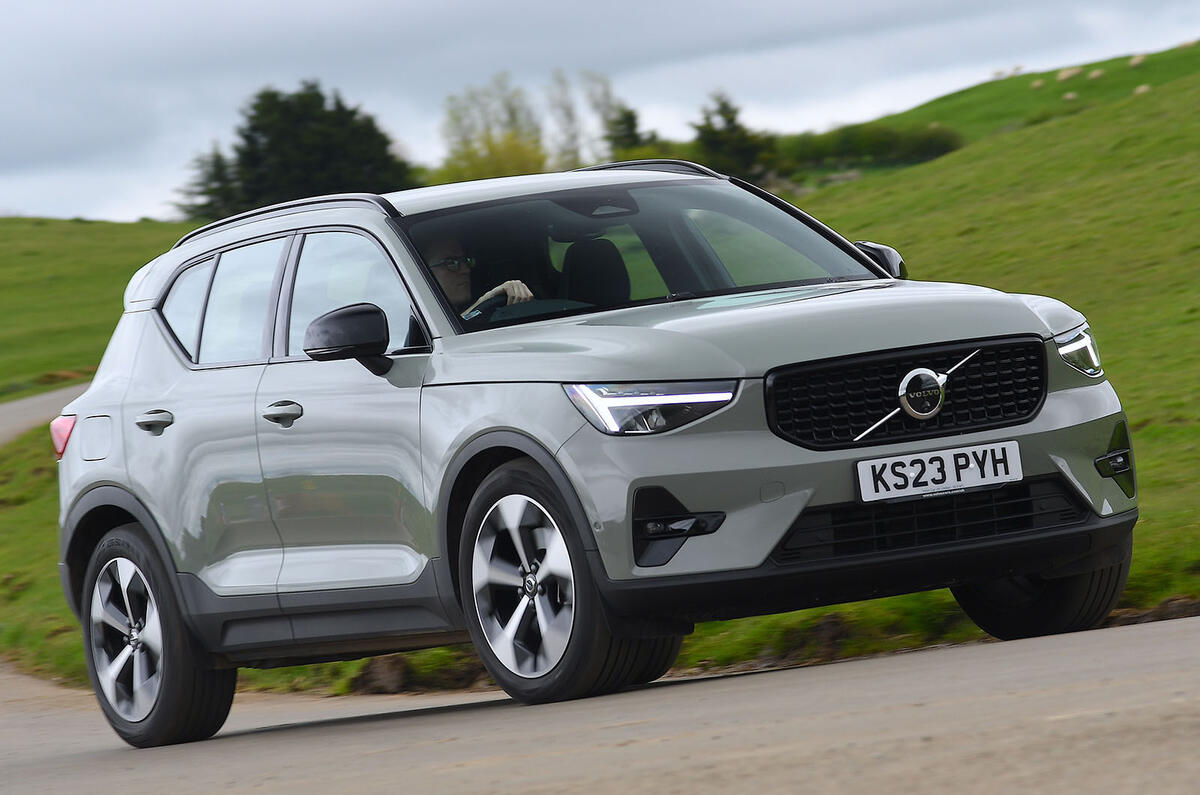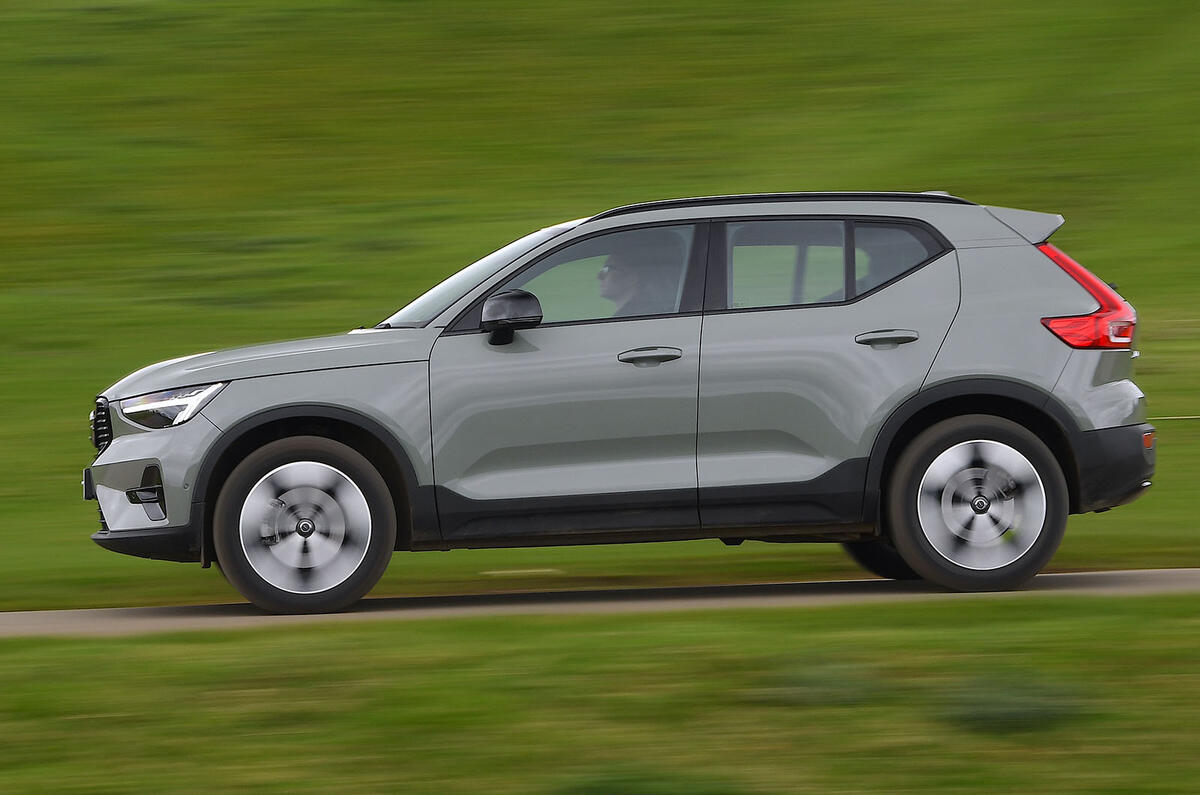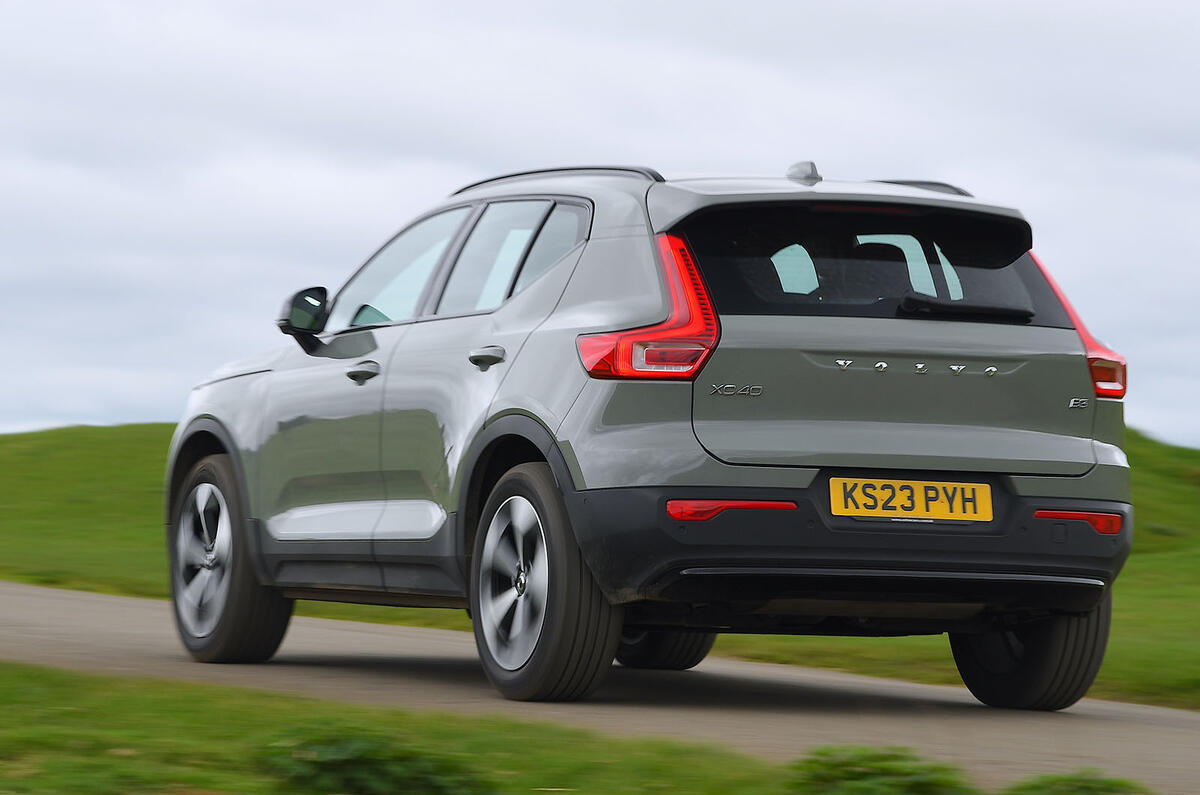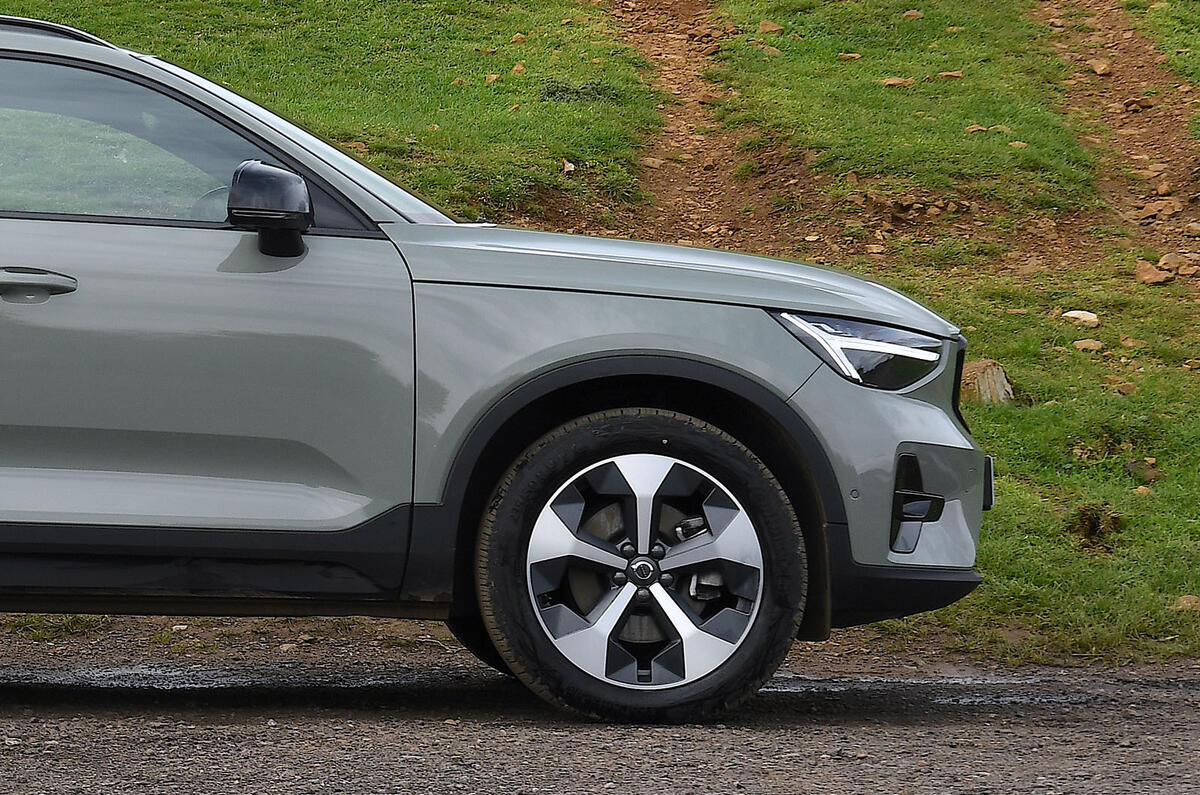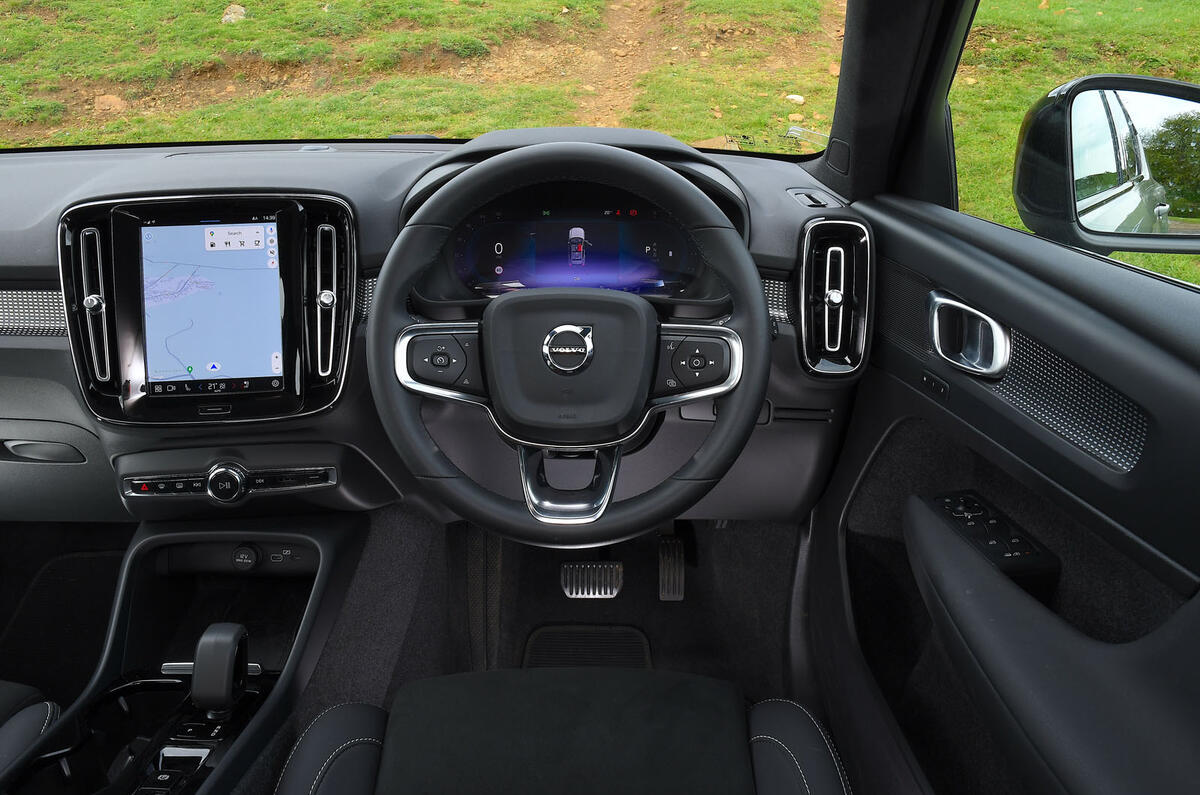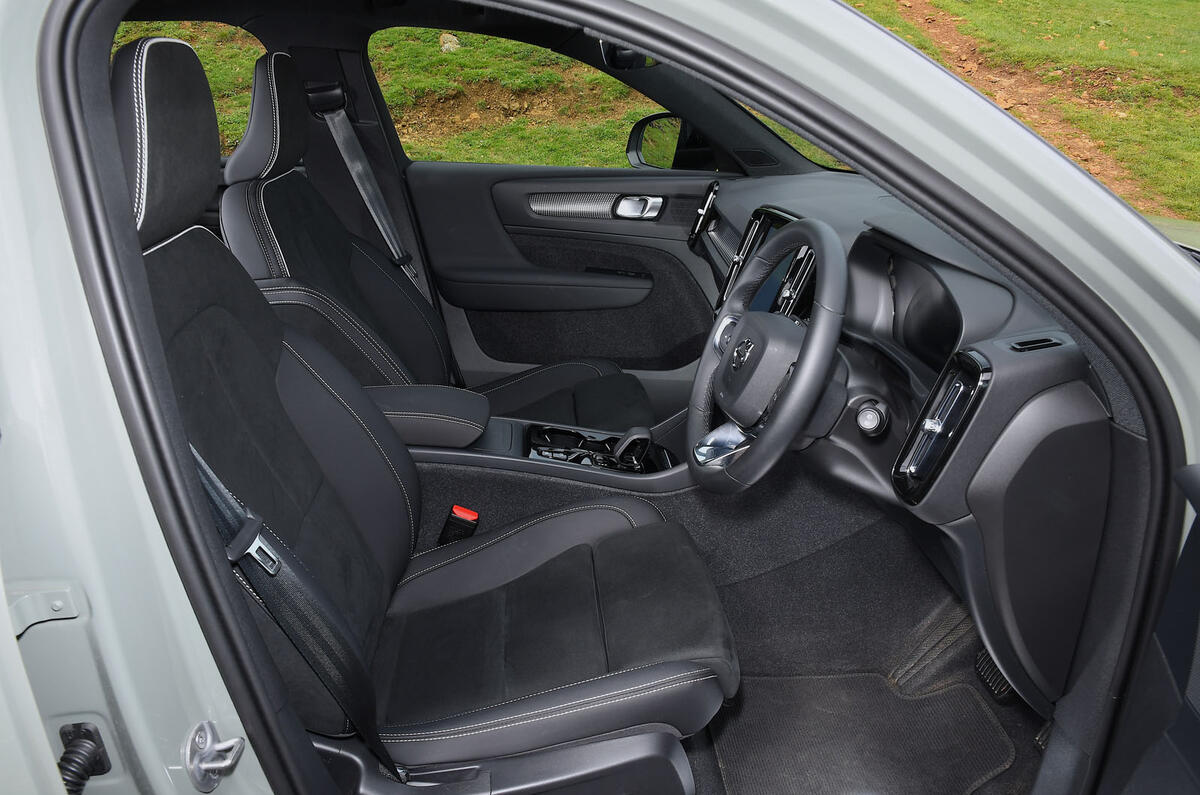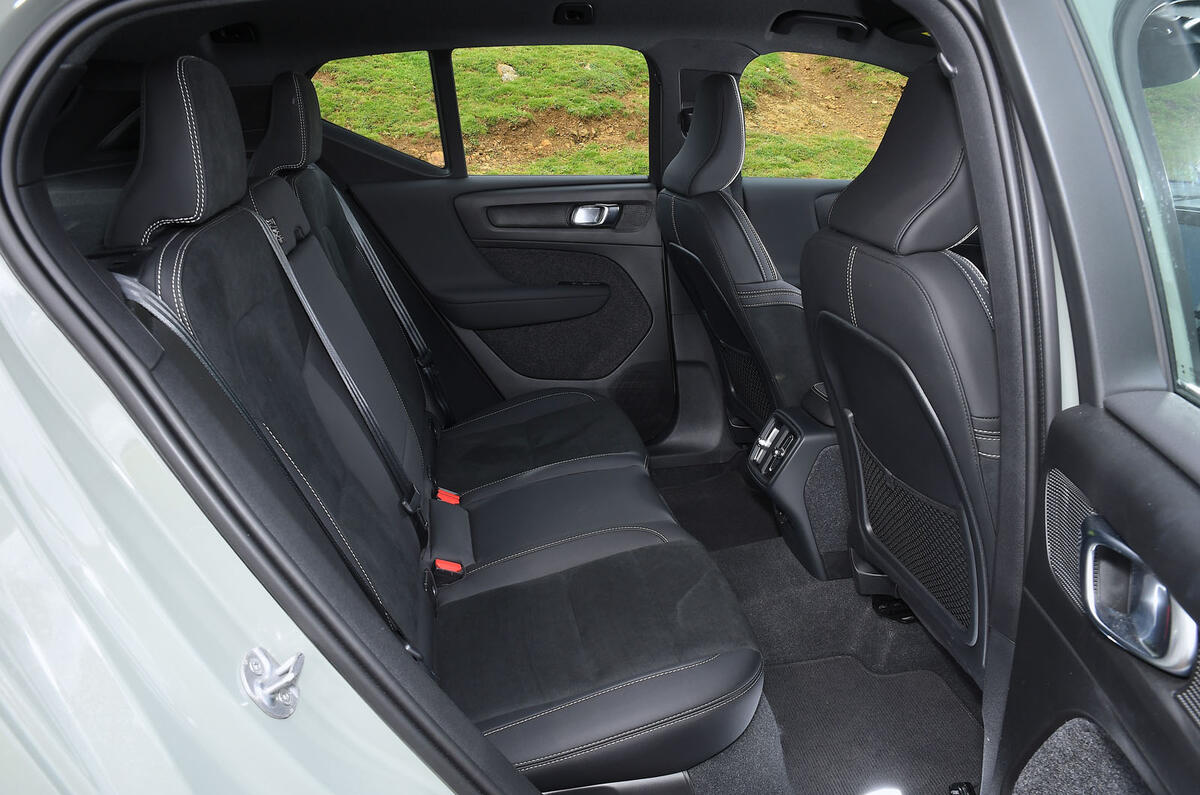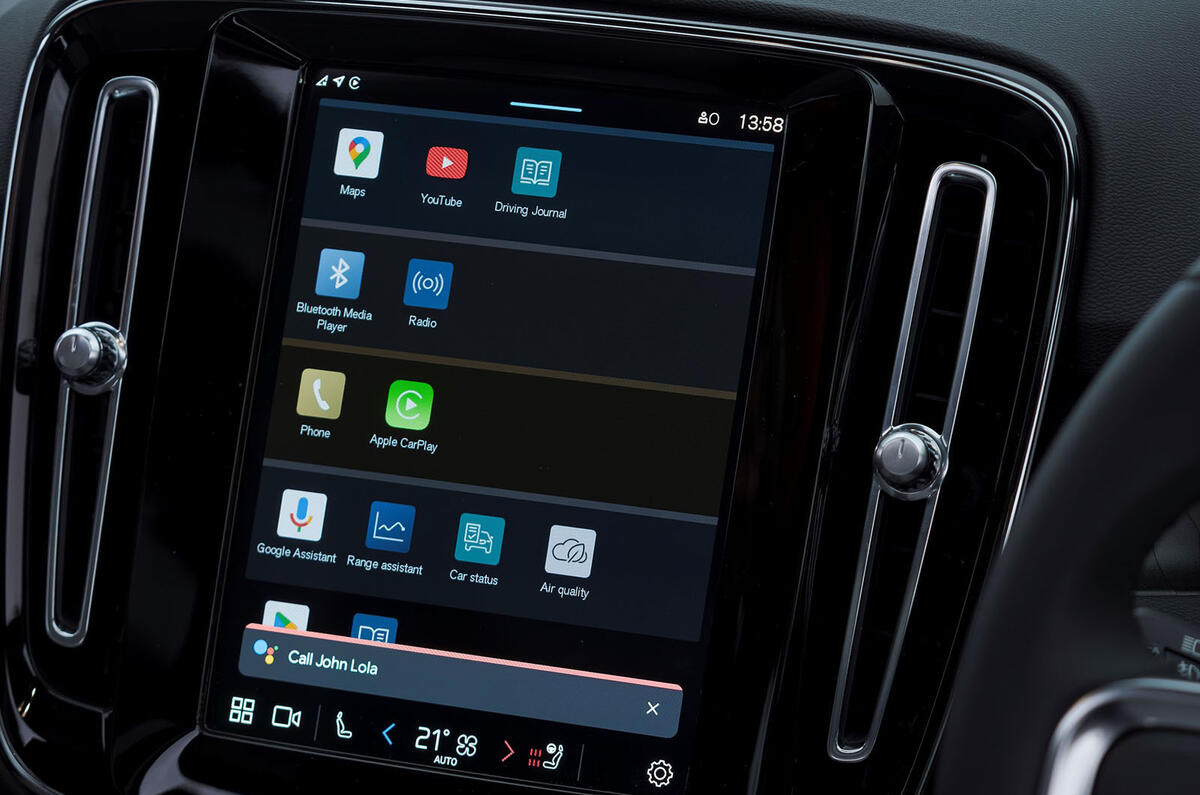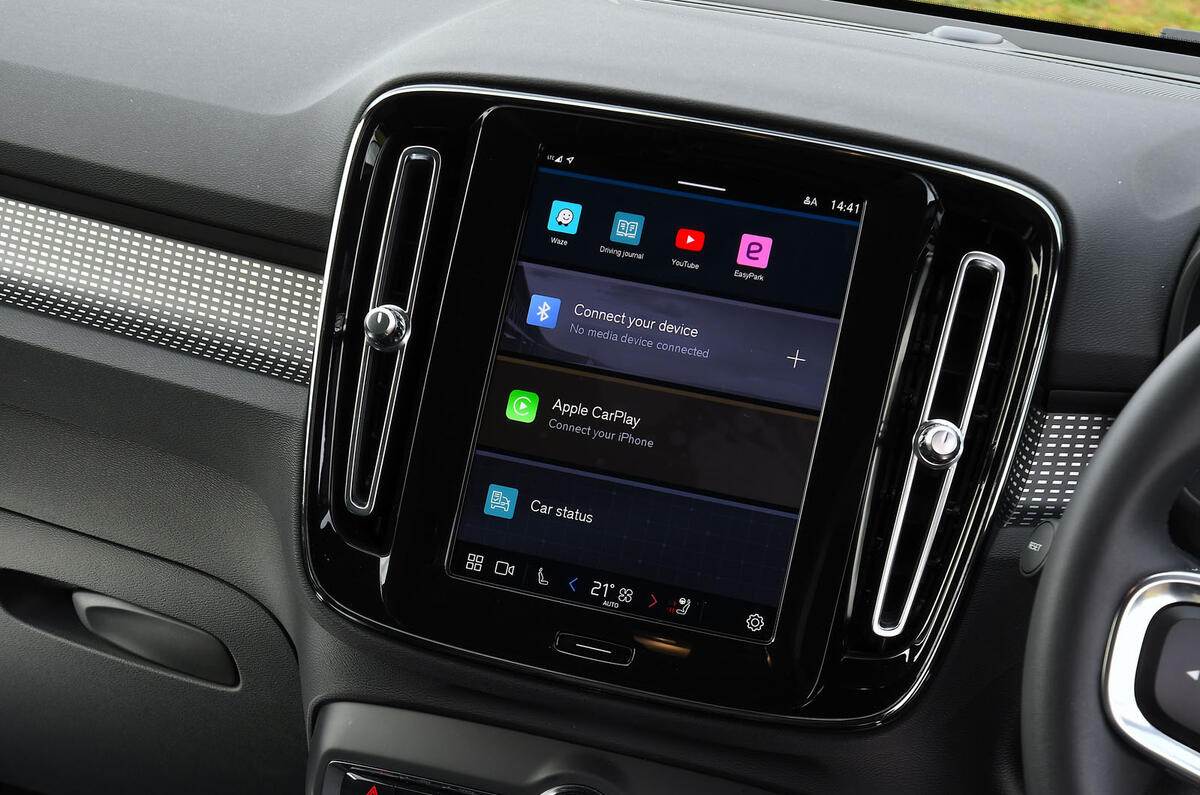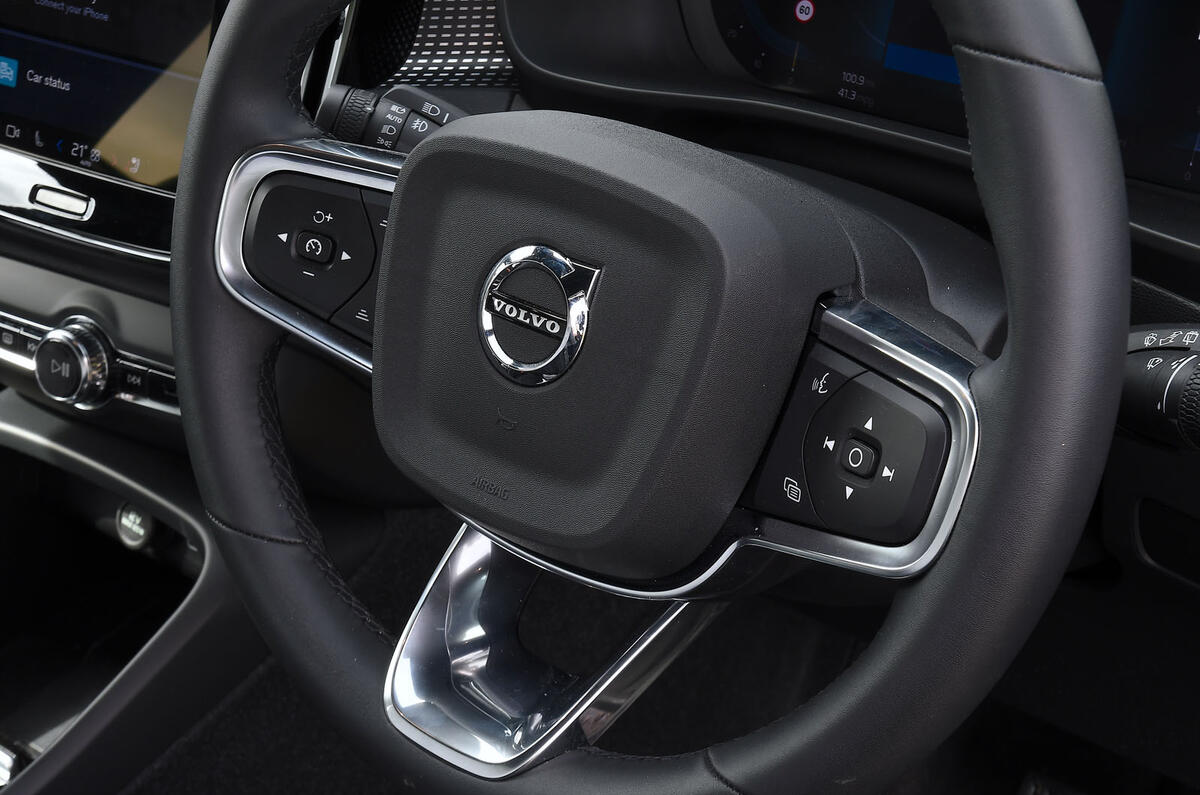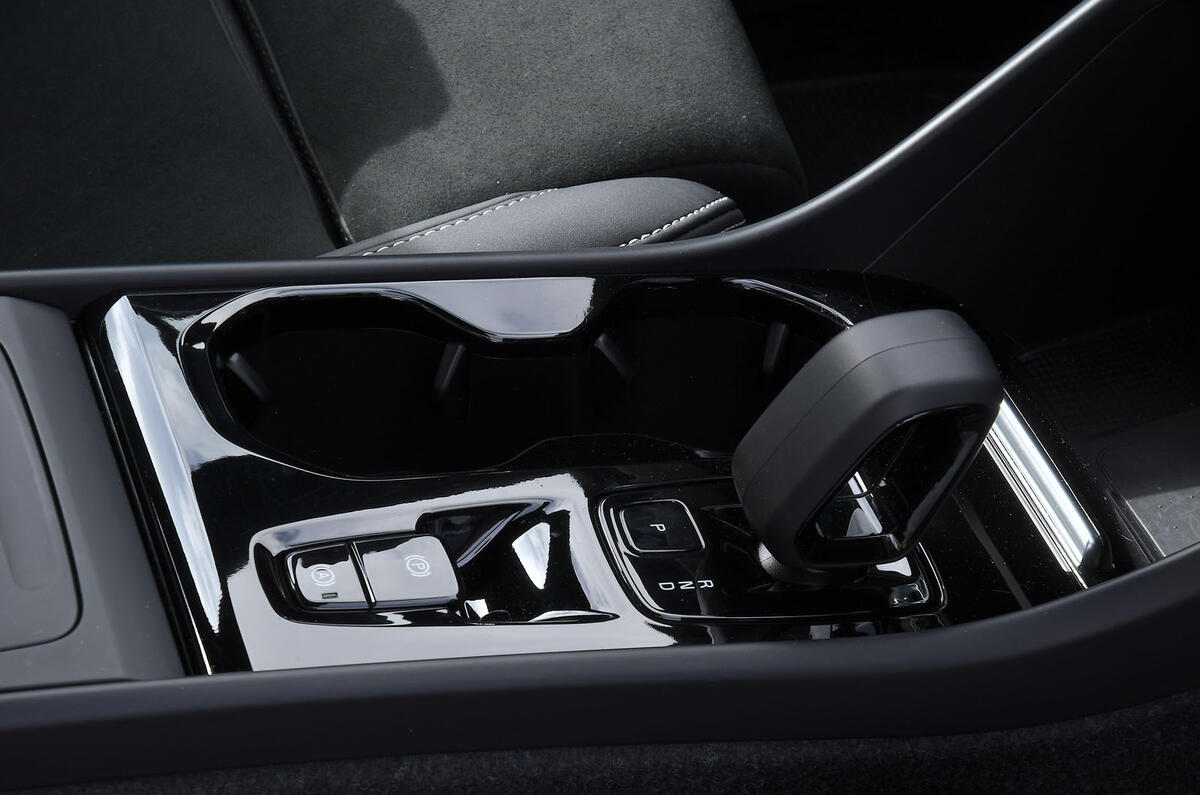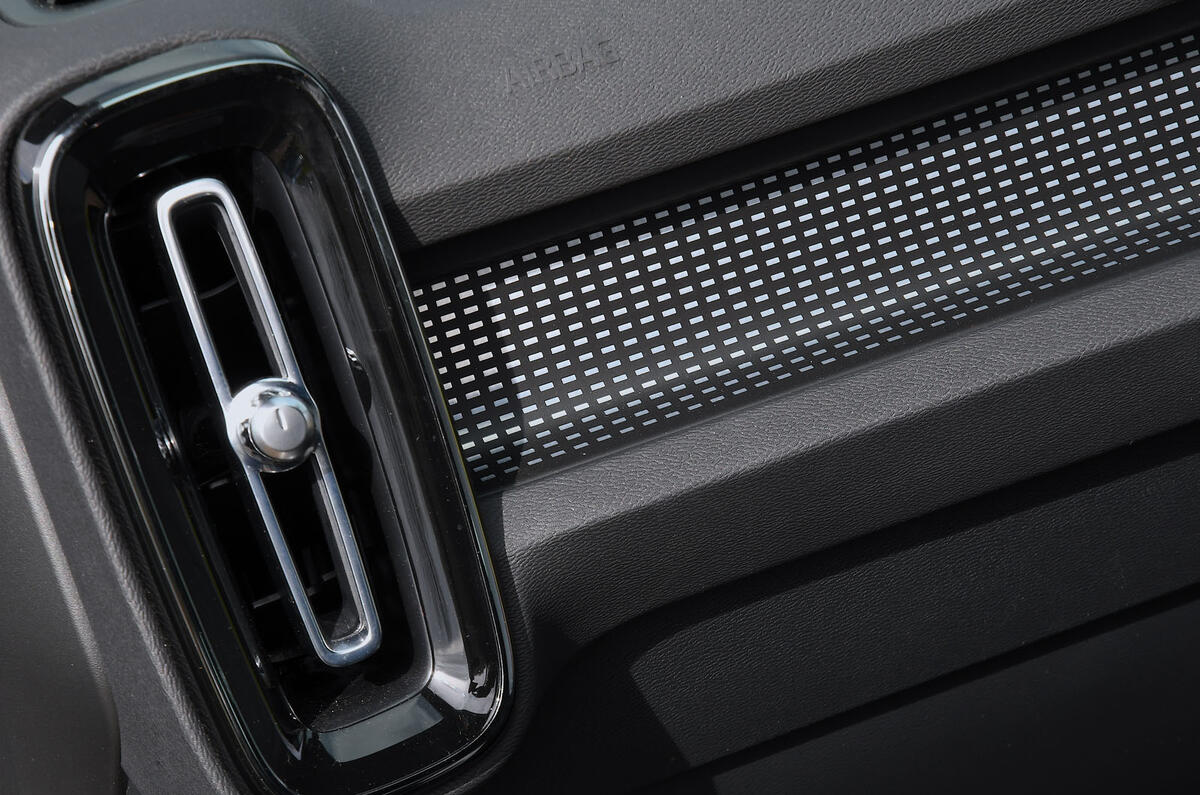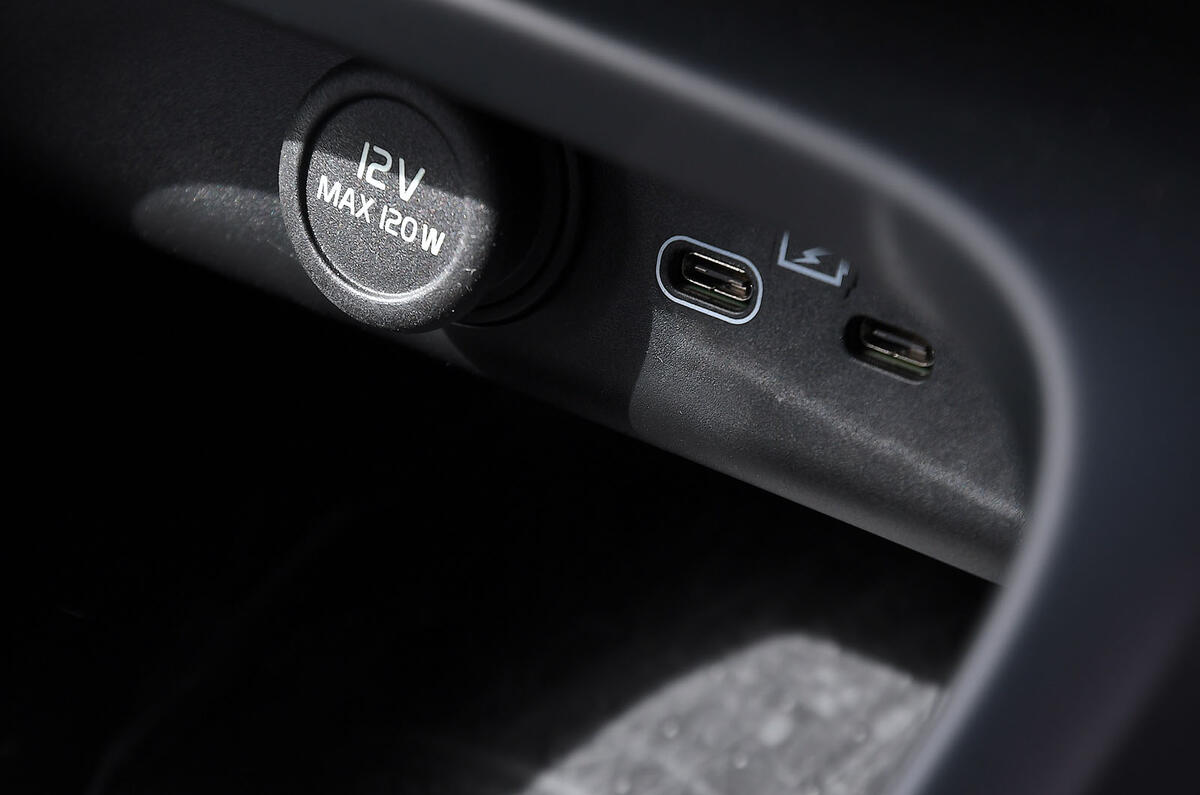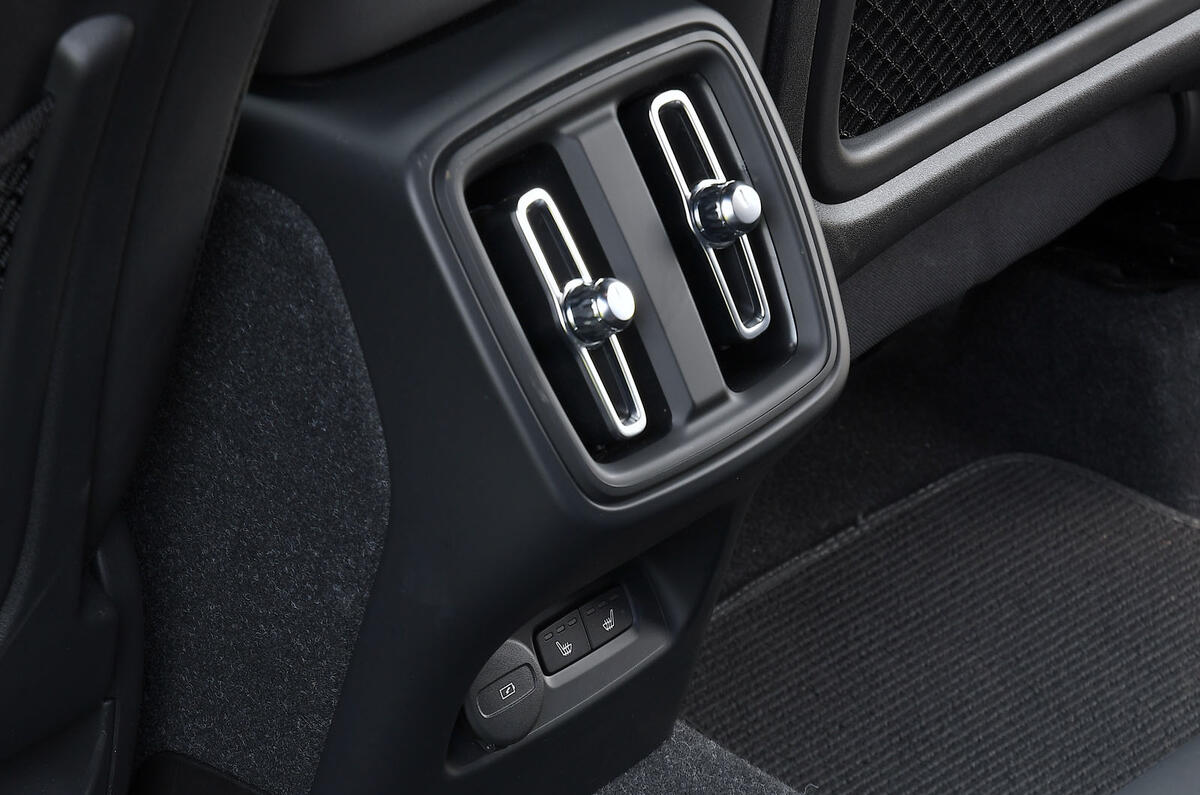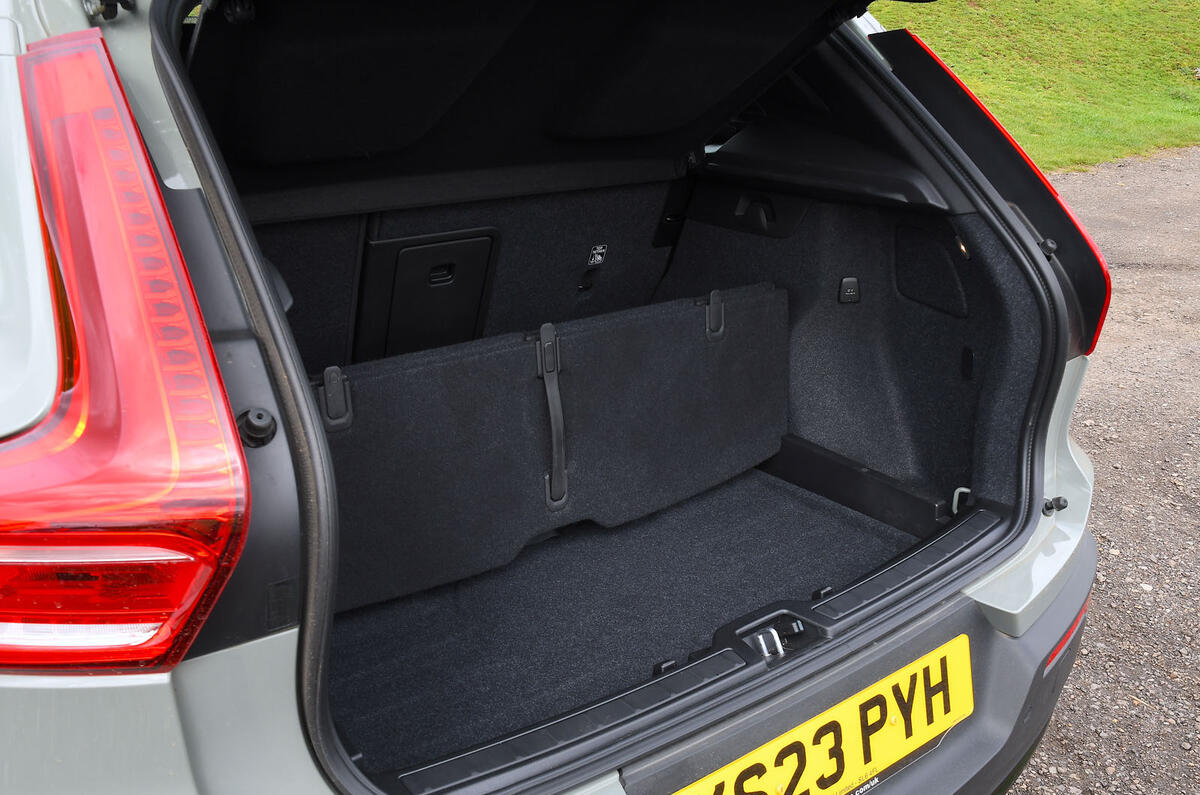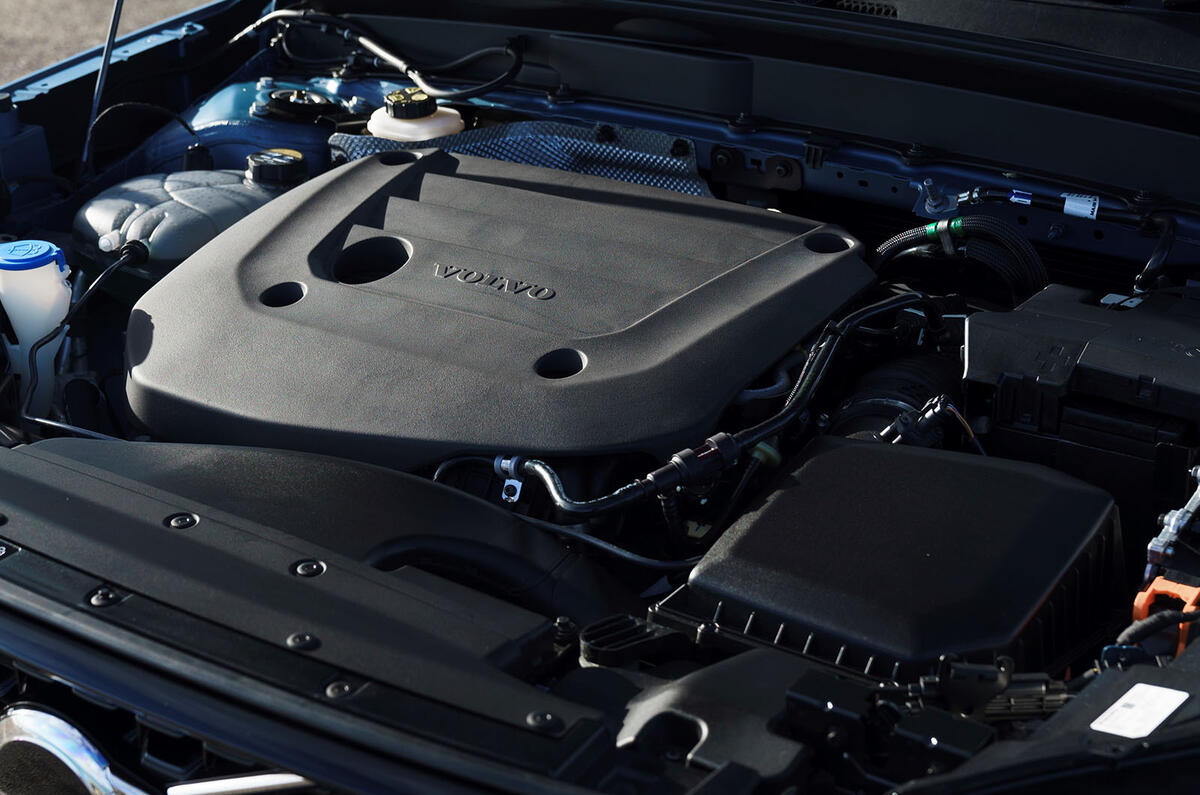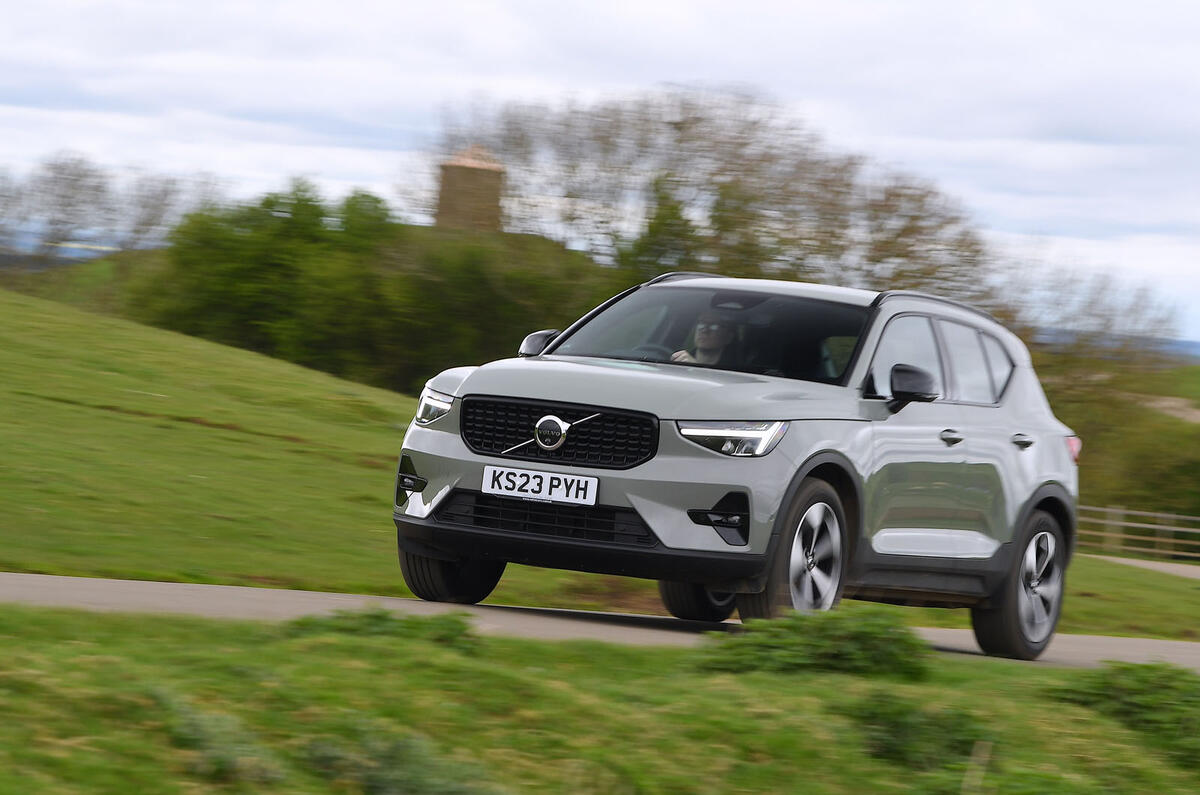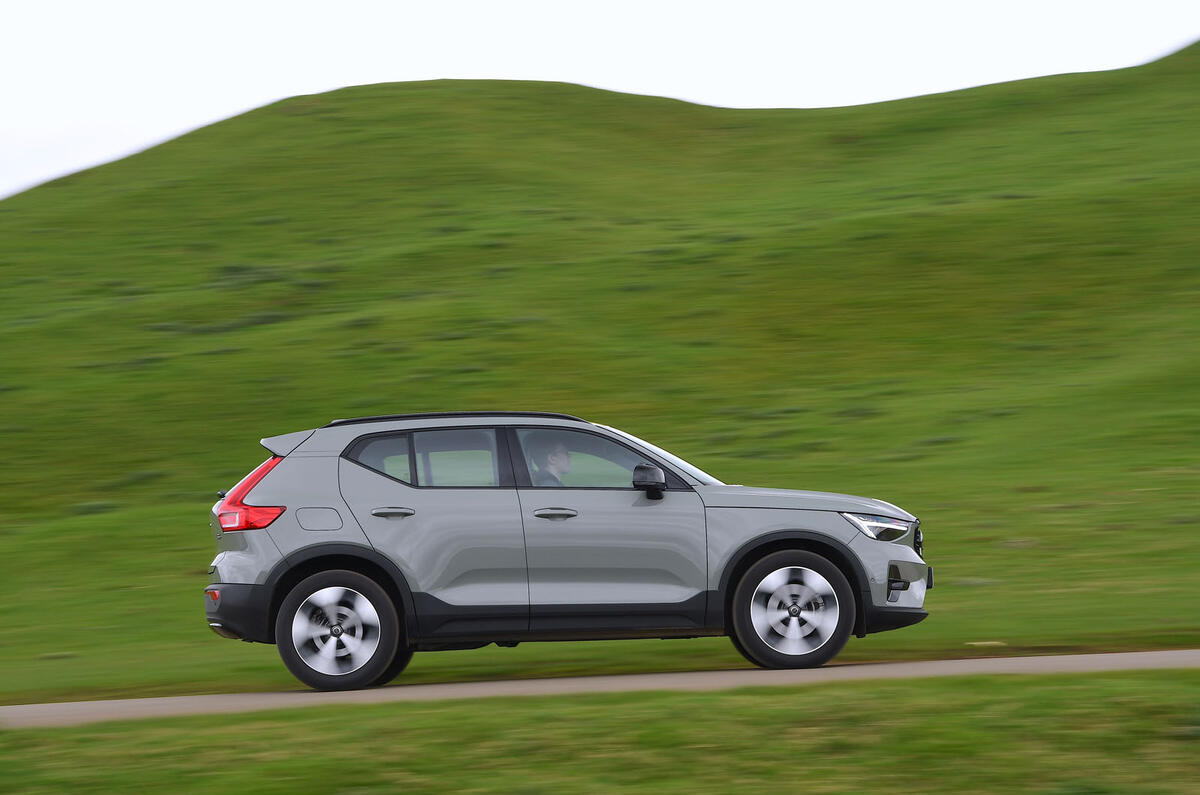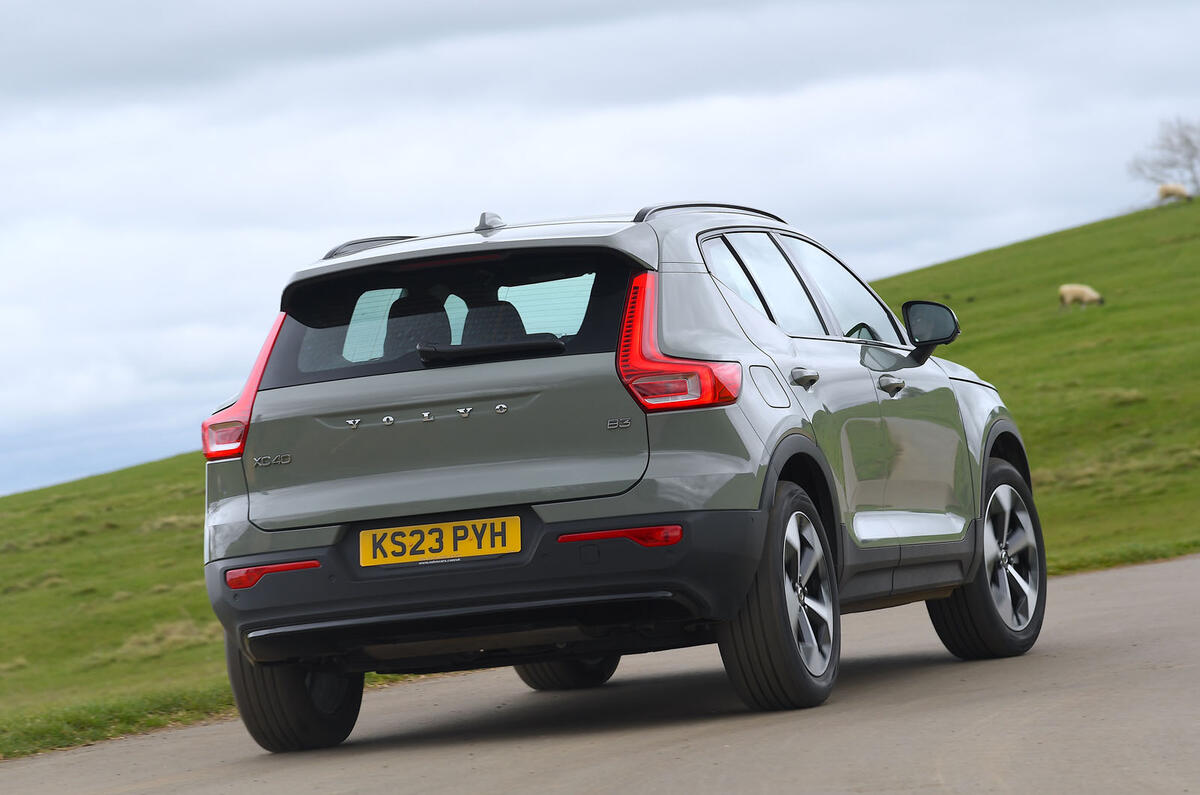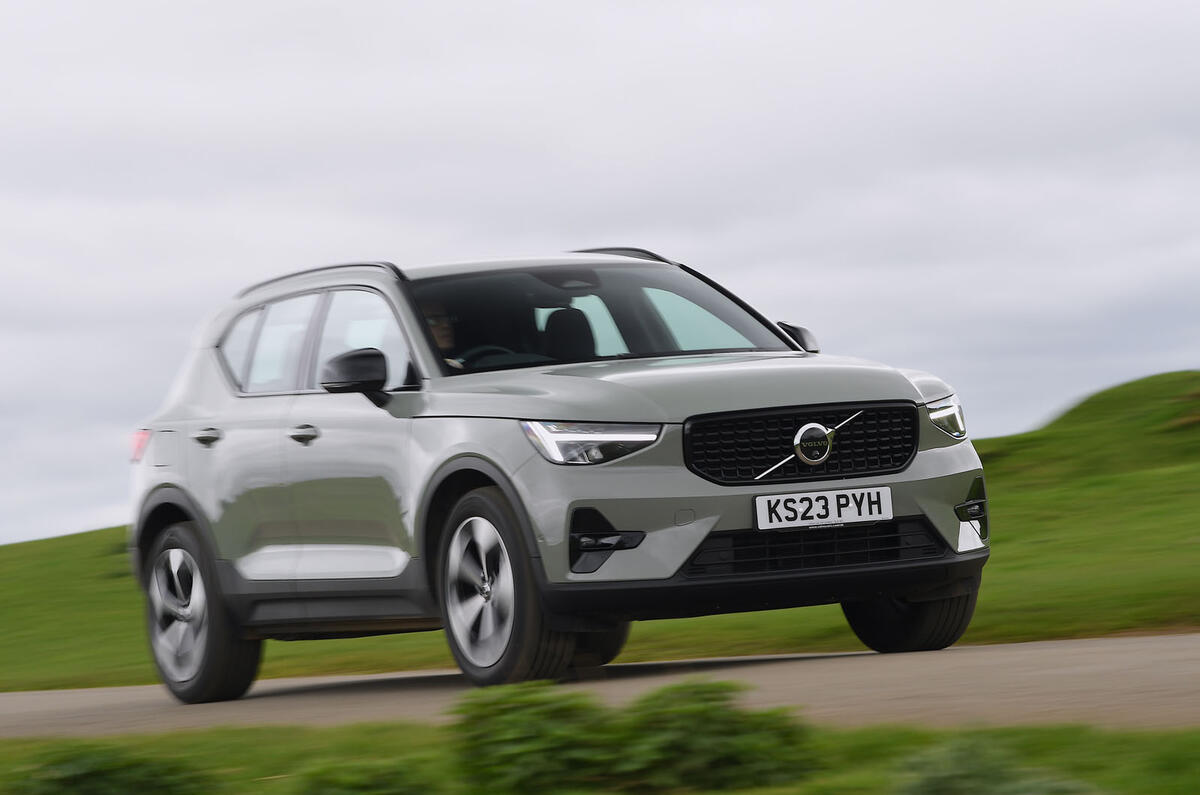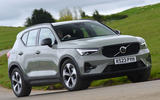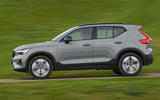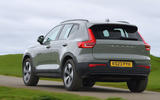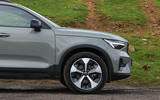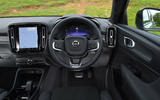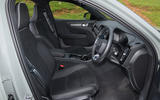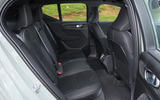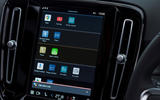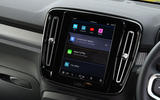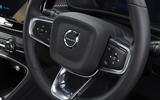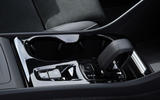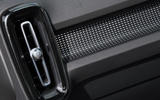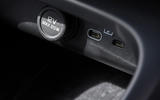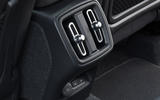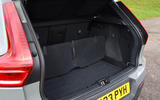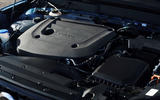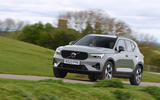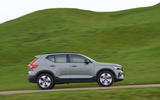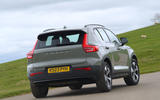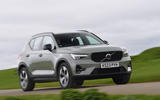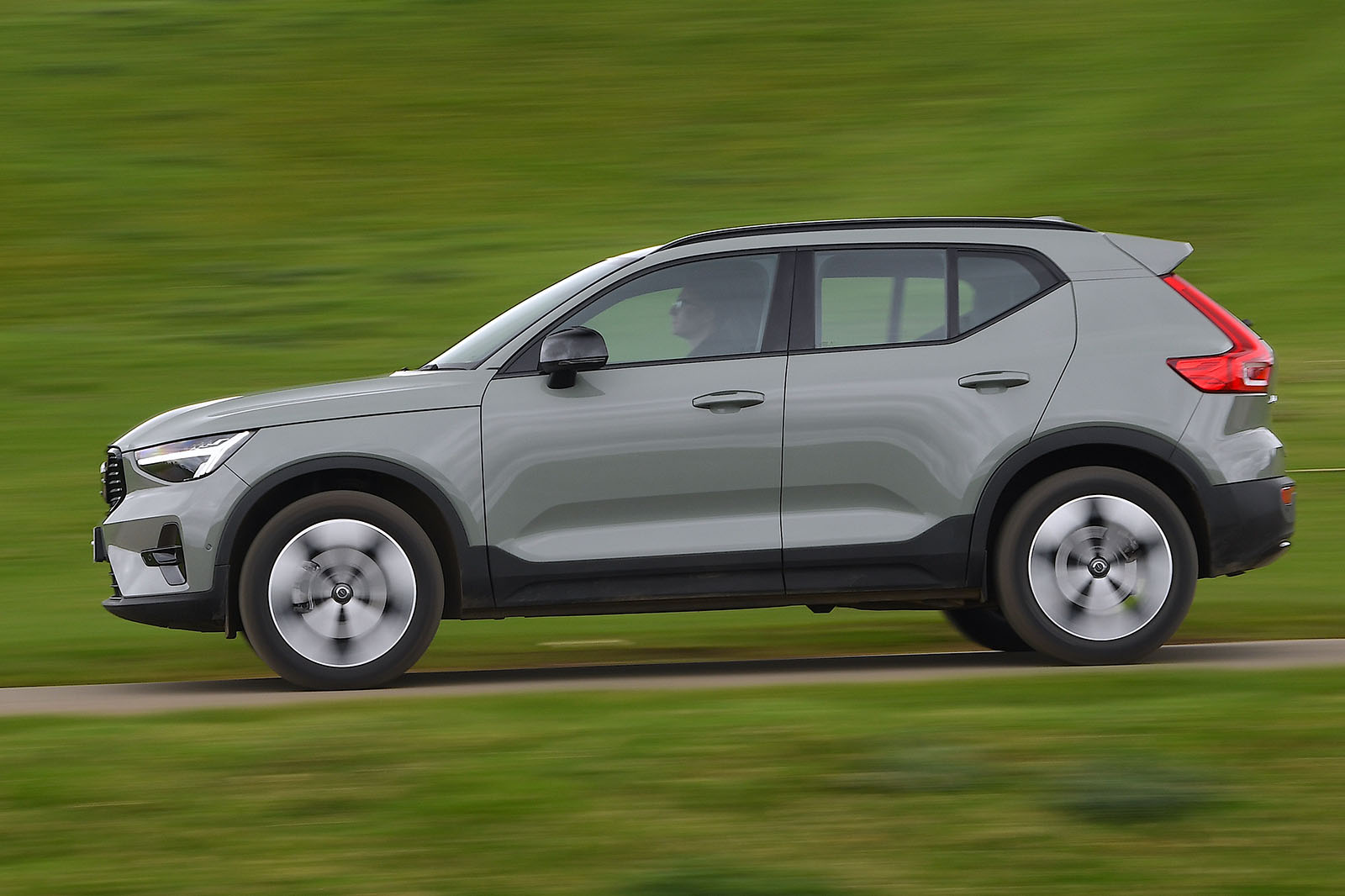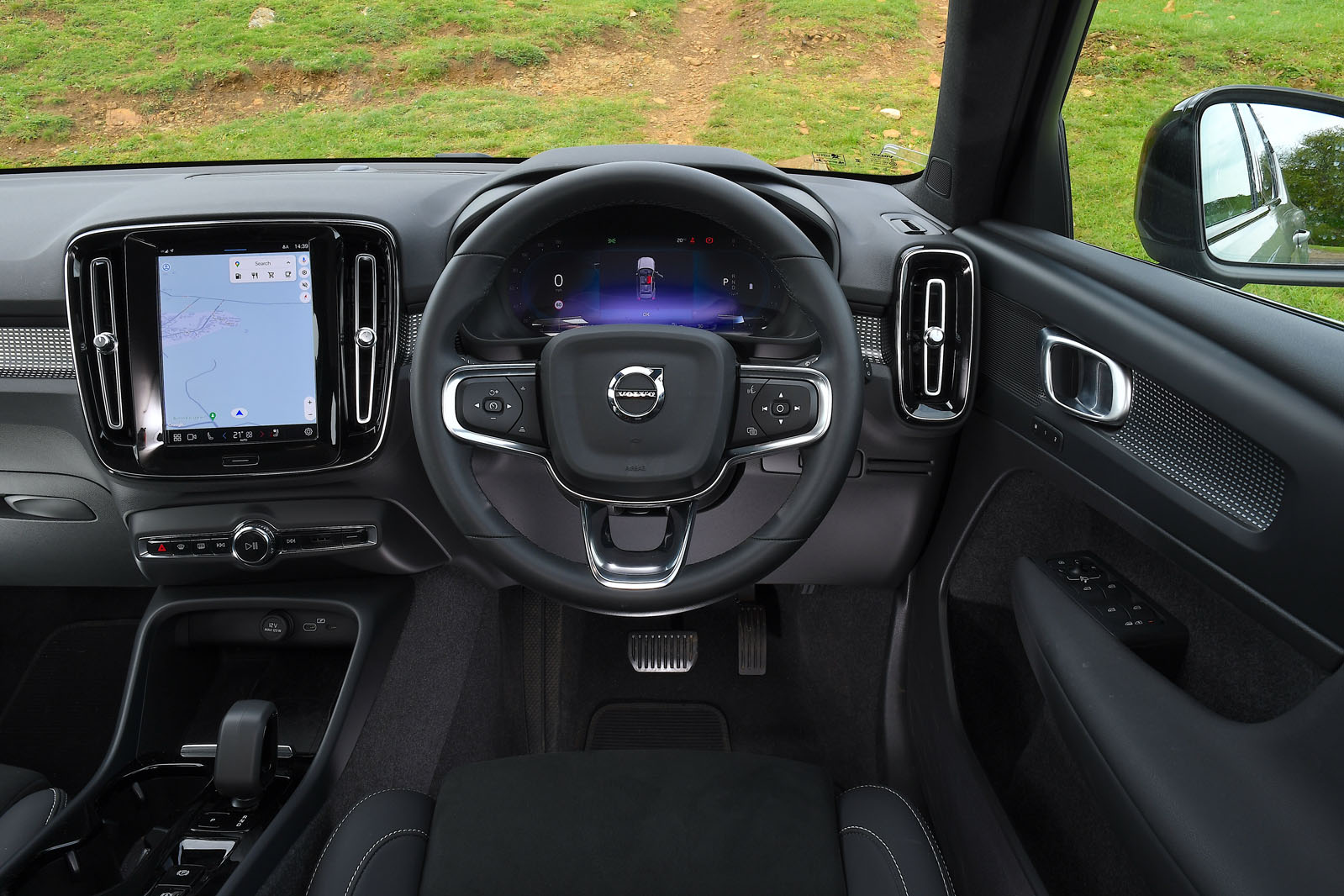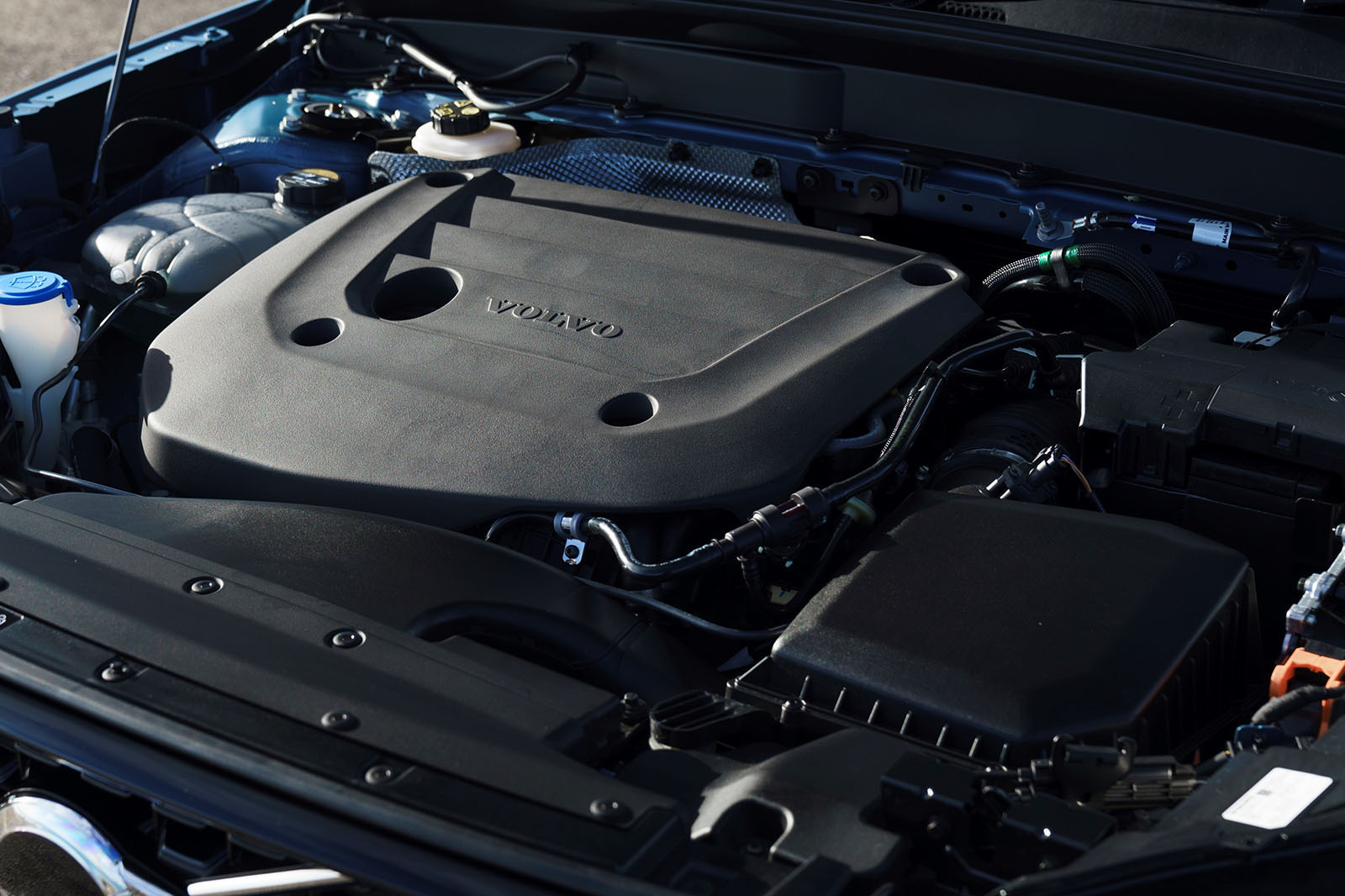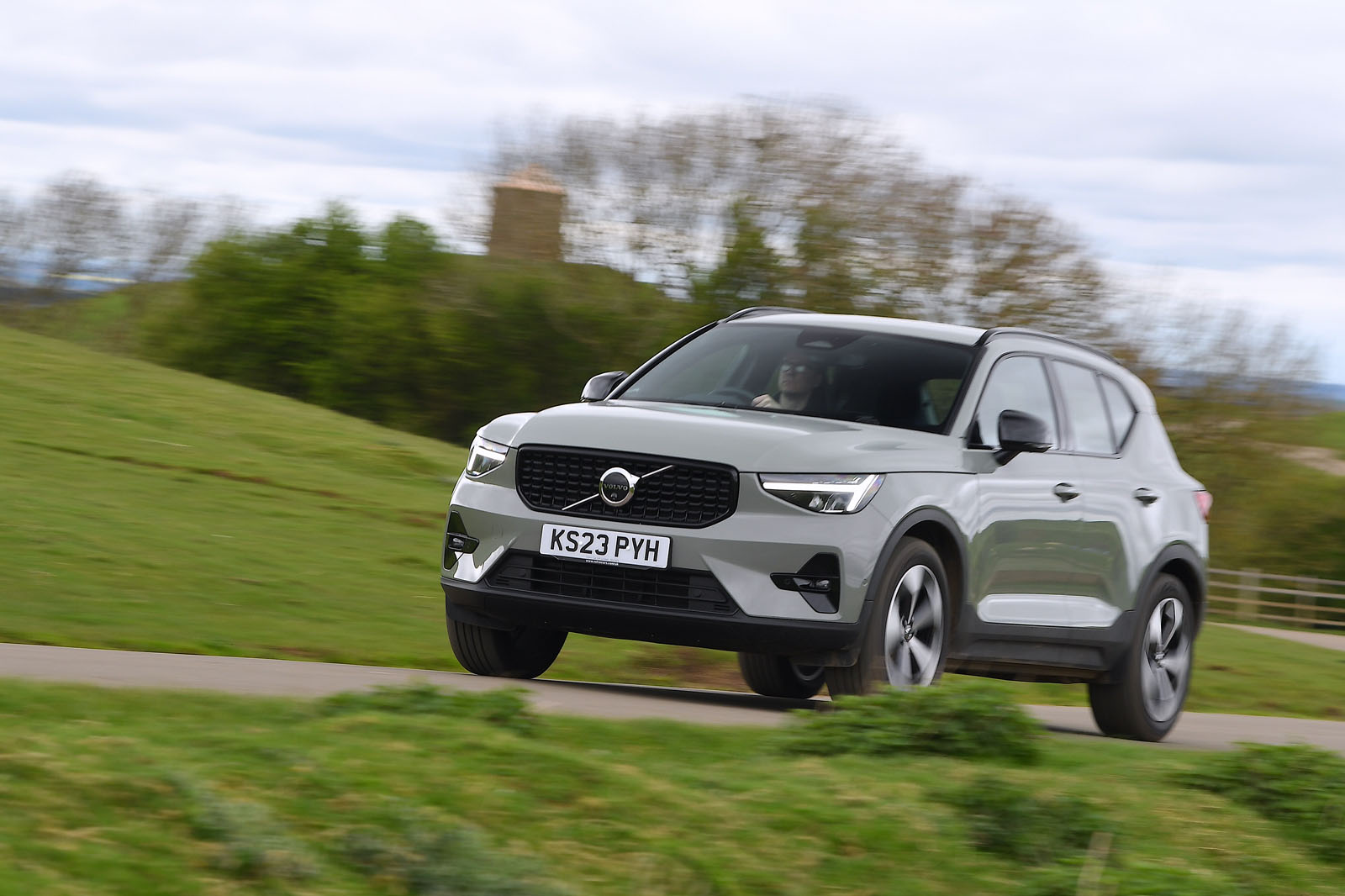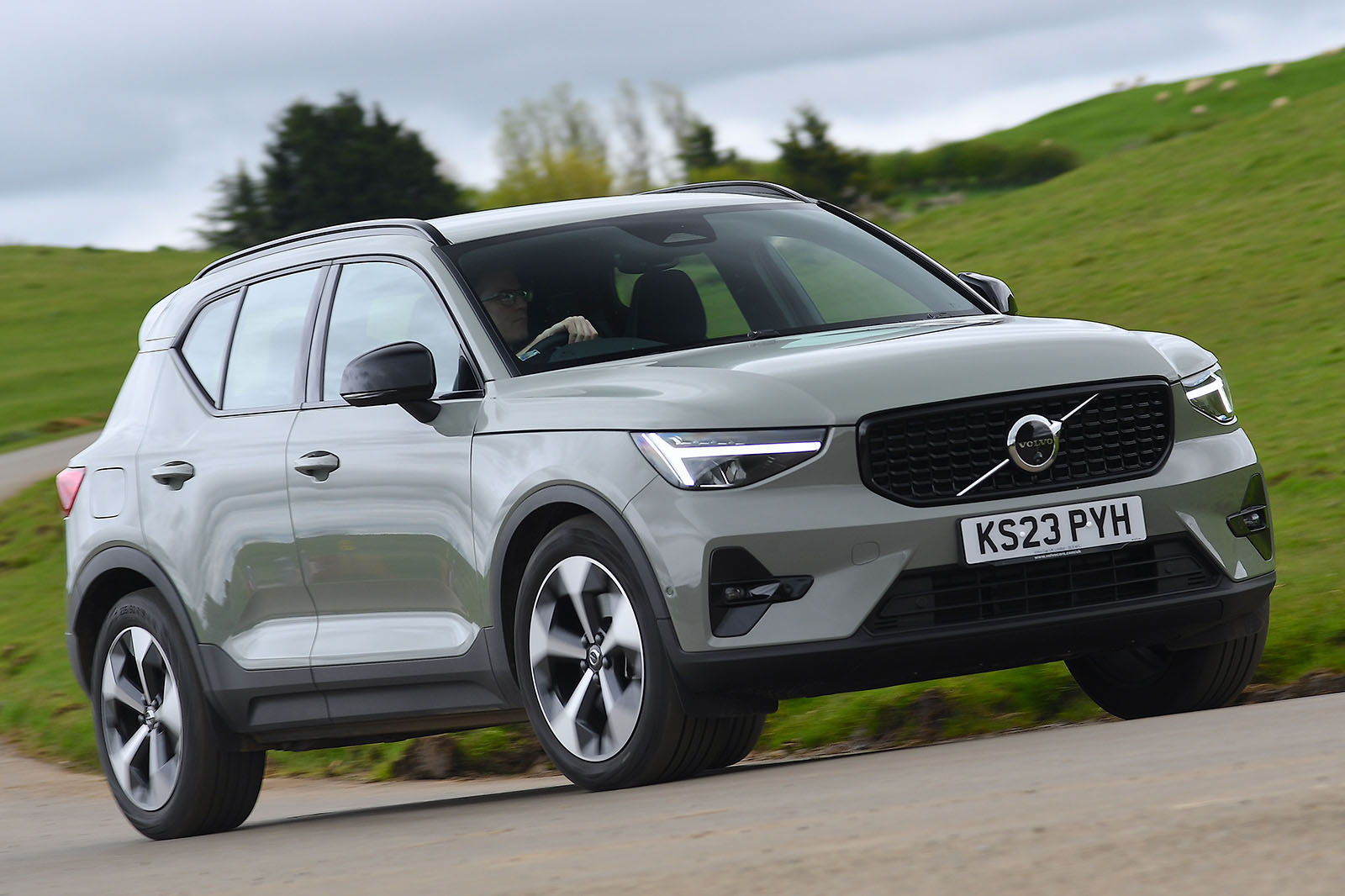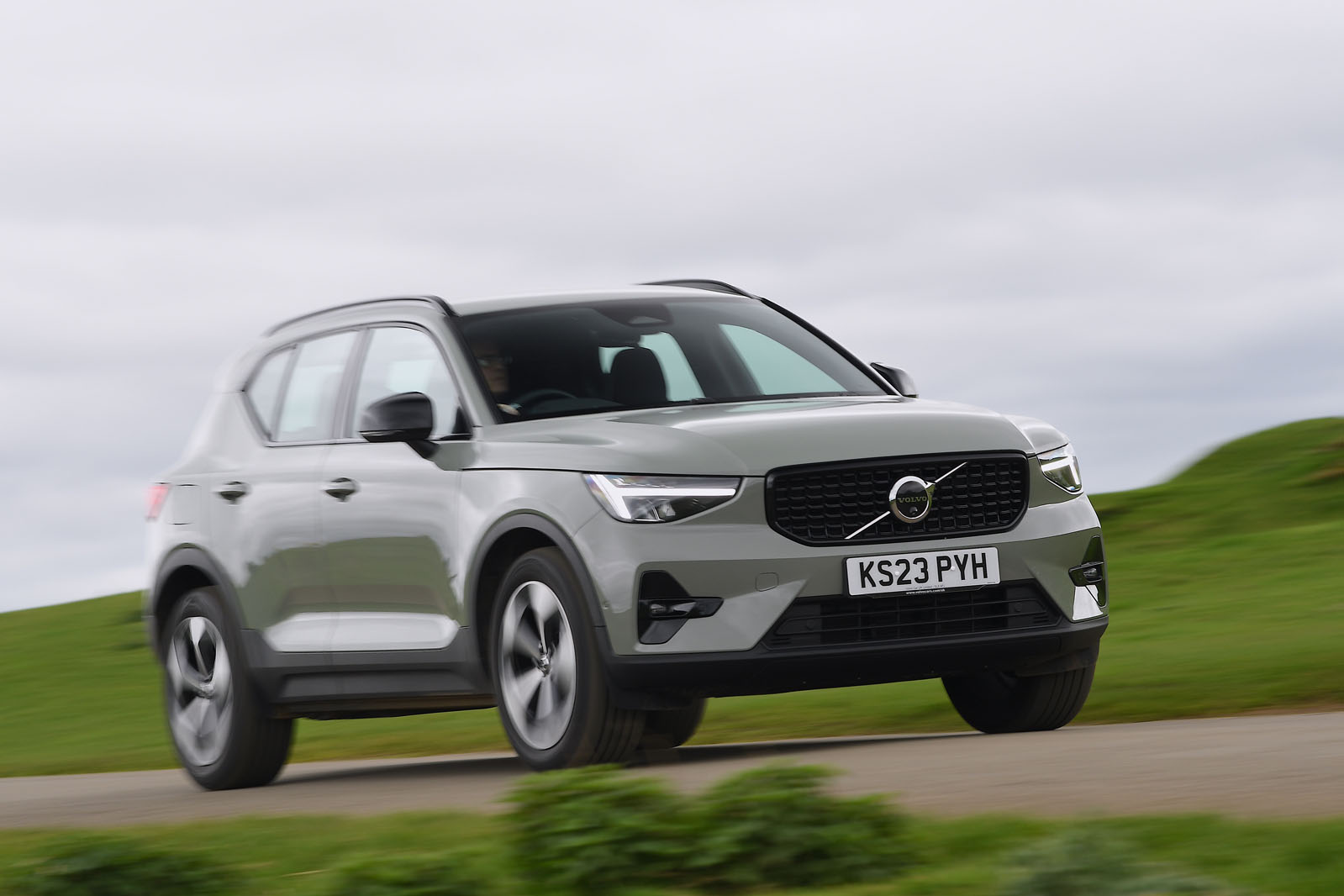Volvo has applied the same themes and approach that brought us the airy, lounge-like interiors of the XC90, XC60 and V90 to a class whose last words on cabin sophistication have thus far been the Audi Q3 and Range Rover Evoque, and in doing so it has delivered an interior for the XC40 that looks and feels luxurious, expensive, informal and very pleasant.
The approach employed is similar to that of Volvo’s larger and more upmarket SUVs, but with a touch of added visual flair and youthful exuberance.
The car’s stylised, narrow air vents flanking the (portrait style) Sensus infotainment system and its patterned dashboard decoration foils (which reflect the light in the daytime and are backlit in the same pattern at night) draw the eye and invite it to linger. This serves partly to draw attention away from some slightly cheaper-feeling fixtures (the window switches and the buttons on the steering wheel spokes) than those you’ll find in Volvo’s bigger cars, but the XC40 is a more affordable proposition, after all. Even allowing for their presence, then, you won’t feel as though you’re being short-changed as far as quality is concerned.
Volvo’s Sensus infotainment system is fitted as standard across the XC40 range. The 9in portrait-orientated touchscreen has pride of place in the middle of the dashboard and is used to operate the majority of the XC40’s functions. These include the entertainment, satellite navigation, heating, ventilation, air conditioning and vehicle settings.
A row of buttons sits beneath the screen, providing quick access to the volume, heated windscreen and heated rear screen. The display screen itself is clear and responsive enough and relatively easy to fathom, but the absence of physical buttons for features such as the climate control is a bit of a pain, because altering settings while on the move does require you to take your eyes off the road.
Although this switchgear-lite approach does lend the cabin a clean-looking, decluttered design, you can’t help but feel that Volvo may have placed form above function – at least until you’re used to working the touchscreen intuitively, at any rate.
Space is good, too. At 2702mm, the XC40’s wheelbase is only 72mm shorter than that of the XC60, so while this might be a smaller car, it doesn’t come with a huge practicality compromise. Adults will find a reasonable amount of head and leg room in the back seats and won’t wince at the idea of a long-distance trip.
However, the shape of the XC40’s rear seats and the shortness of its seat cushions do force taller adults to sit a little uncomfortably, with their thighs propped up in mid air. Thankfully, this being the kind of SUV in which the back seats will be more commonly occupied by teenagers and kids, we needn’t dwell on that, except to note that several similarly sized SUV options have more comfortable second rows.
The XC40’s 432-litre boot will swallow a couple of suitcases without any trouble, but it’s hardly generously sized by class standards: a Volkswagen Tiguan’s is around 50% larger. Still, it’s certainly a deep, intelligently laid out and useful carrying space, with retaining straps, a flat floor, an underfloor storage area and a power outlet. Our test car also featured a retaining partition net, allowing you to prevent high-stacked loads from sliding forwards into the cabin.




